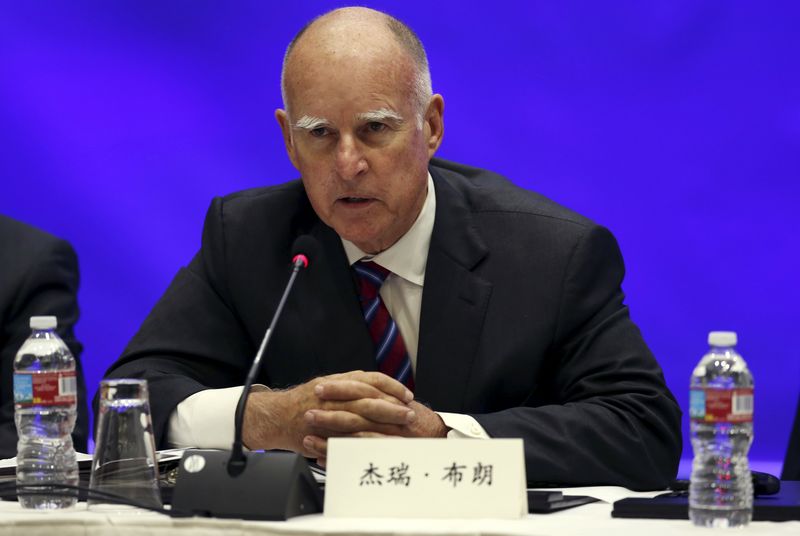By Olga Grigoryants
LOS ANGELES (Reuters) - California Governor Jerry Brown on Wednesday signed into law a bill requiring the state to produce half of its electricity from renewable sources by 2030, a goal that he said was key to combating global climate change.
The move was cheered by environmentalists even though language to cut petroleum use by 50 percent over the next 15 years was stripped from the bill after objections from the oil industry and some lawmakers.
"A decarbonized future is the reason we're here," Brown said at a bill signing ceremony in Los Angeles. "What we're doing here is very important, especially for low-income families."
The bill also requires a doubling of energy efficiency in buildings by 2030.
"I'm disappointed that we don't have the petroleum piece," bill author Senator Kevin de Leon said after the bill signing. "But two measures dealing with the energy efficiency and renewable energy are far-reaching and the most advanced in the world."
Environmentalists said they too were disappointed that the bill did not require a cut in gasoline and diesel use in the most-populous state in the country.
"There's no question that increasing the amount of power California gets from renewable sources is good for our state," said Rebecca Claassen, Santa Barbara County organizer at Food & Water Watch. "But cutting emissions and increasing clean energy use only gets us part of the way," she said.
Ann Notthoff of the Natural Resources Defense Council called the oil industry's campaign against the provision "deplorable," but vowed to fight on.
"Despite Big Oil's smokescreen, one thing is clear: California's leadership and communities across the state are more committed than ever to reduce our dependence on petroleum and eliminate its devastating impacts on the health and well-being of Californians," she said in a blog post.
A separate bill, which would have mandated an 80 percent reduction in greenhouse gas emissions by 2050 from levels emitted in 1990, was also pulled near the end of the legislative session but is expected to be reintroduced next year.

In late September, the state's Air Resources Board readopted its controversial low carbon fuel standard program, which requires a 10 percent reduction in the carbon intensity of transportation fuels burned in the state, a victory for environmentalists.